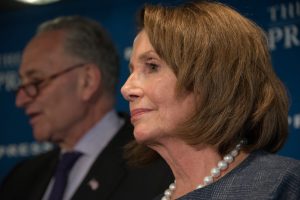Support small businesses year-round

While holiday turkey and time with family are at the forefront of many minds across the country this weekend, Americans shouldn’t overlook another holiday that follows closely after Thanksgiving. Small Business Saturday is a nationwide event, taking place on Nov. 24, that encourages shoppers to visit local small businesses as part of the holiday gift hunt.
Since Small Business Saturday was launched in 2010, American Express estimates that $85 billion dollars has been spent during this holiday at small businesses — which averages to well over $10 billion on the day every year.
The boost in sales is welcomed on Main Streets across the country. But not only do small business owners themselves appreciate the increased foot traffic, the broader American economy benefits as well.
The sheer size of the small business community makes the group an economic powerhouse. There are over 30 million of them across the country, and they employ 60 million people — which is roughly half the entire U.S. workforce. Not to mention these small business entrepreneurs are responsible for two-thirds of all new job creation in the country.
It’s obvious that when small businesses are succeeding, all Americans are prospering.
This is why it’s so important that efforts to help small businesses don’t come screeching to a halt after the upcoming holiday, but continue year-round. And while regularly visiting local small businesses is helpful, legislative support should come from lawmakers.
From a policy perspective, small businesses have been on cloud nine over the past year — enjoying an administration in Washington that has tackled two of the biggest challenges that have historically faced small businesses: high taxes and overregulation.
For starters, President Trump has made it a central theme of his time in office to weed out unnecessary regulations — instituting a policy that mandates two regulations be eliminated for every new one added. That goal has even been surpassed this fall as four regulations have been removed for every additional one created.
Moreover, the implementation of the Tax Cuts and Jobs Act has significantly lowered the federal tax burden for small businesses and their patrons. As a result, small businesses are using the financial relief to hire more people, raise wages, and expand operations. And since more Americans have thicker wallets, consumer confidence remains near record highs — ensuring that small businesses have a steady stream of paying customers.
The impact of these developments on the broad economy has been impressive. The unemployment rate remains at a 49-year low, and the economy is growing at a white-hot pace. Economic growth surpassed 4 percent in the second quarter of this year and hit 3.5 percent in the third quarter — keeping the economy on track to grow by more than 3 percent this year for the first time since 2005. Not only does this mean the U.S. is producing more goods and providing more services, but Americans have more money in their pockets and small businesses have more wiggle room in their budgets to reinvest back into the community.
Going forward, however, lawmakers at the federal level need to roll up their sleeves if this economic prosperity is to be prolonged. Measures in the tax cuts legislation pertaining to small businesses and individuals are scheduled to expire in 2025. Policymakers, regardless of political affiliation, need to come together and extend those benefits.
Policies that benefit small businesses should be the source of bipartisan cooperation, not partisan gridlock.
Small Business Saturday is just around the corner. While holiday participation is encouraged, Americans and their representatives in Washington should support small businesses all year long. After all, a thriving small business community is something we can all be thankful for.
Elaine Parker is president of the Job Creators Network Foundation.





